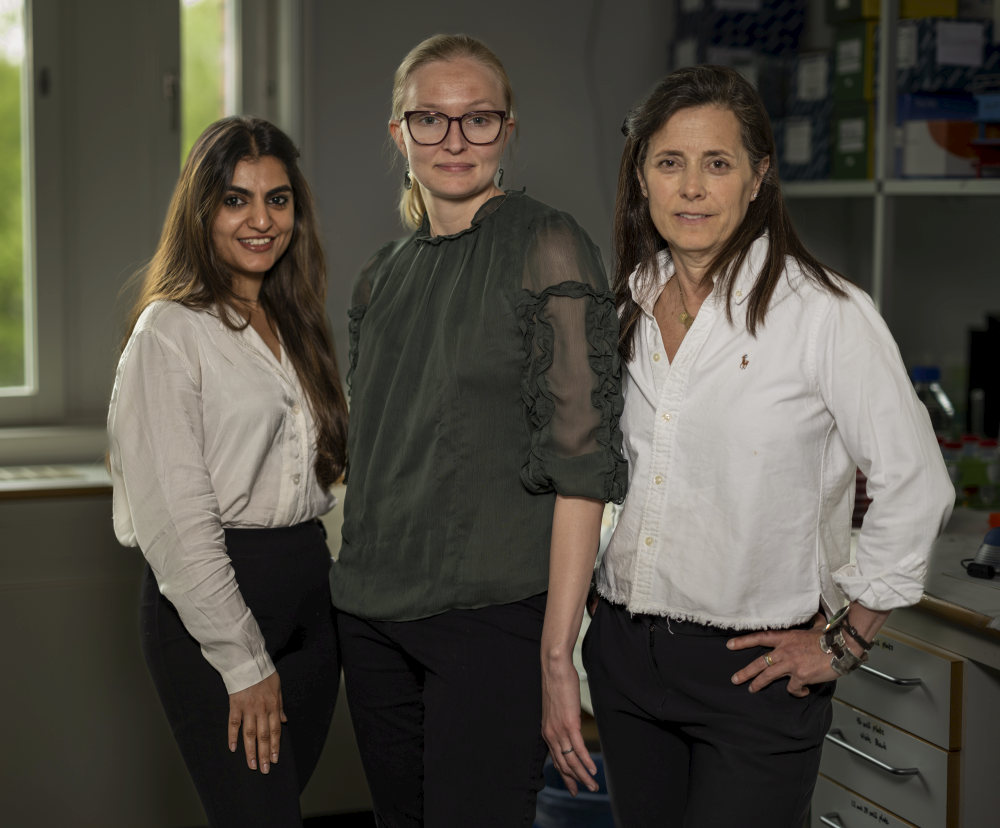– I wanted to learn specific oral microbiome culturing techniques that Prof Fernanda Petersen's lab had developed and was running in their laboratory. I was specifically interested in the impact of small peptides from oral Streptococci and how they would alter the oral microbiome.
– Additionally, I already had an ongoing collaboration with the group via the INTPART-RESISFORCE project through the Federle lab at the University of Illinois at Chicago. I have met and interacted with Prof Petersen and members of the lab on different occasions and was impressed by their research on the oral microbiome and large-scale analysis of the development of antimicrobial resistance. When I was offered the opportunity to come to UiO, I immediately accepted the offer.
Interdisciplinary research group
The RESISFORCE is a collaboration between Norway and partners in the USA, Canada, India and Brazil. The project has received students, PhDs and guest researchers from abroad before. Last year, Mateus from Brazil spent almost one year with the group.
– Our experience with the incoming researchers has always been excellent, says Professor Petersen, and she was happy to hear that Britta enjoyed her stay in Oslo:
– Receiving researchers and students from our partners abroad is a learning experience for us all. Interactions happen at different levels, including laboratory activities and discussions through seminars, presentations, and other educational arrangements.
Peptides and their Effect on the oral microbiome
Britta's research project centers around investigating the effects of modified peptides called RaS-RiPPs on the architecture of the oral microbiome. These peptides have recently been discovered, and their impact on various bacterial species and microorganisms is still being explored.
– We are only beginning to study the impact of these on other bacterial species and microorganisms. The objectives of my project in question are to examine the impact of RaS-RiPPs on the oral microbiome and to examine the shifts in the specification and gene expression in response to these modified peptides, says Britta.
Collaboration with the INTPART project
Britta has been part of the RESISFORCE since the start of the network as RESISPART back in 2018. When asked about her experience working with RESISFORCE/RESISPART and its collaborators over the years, she says:
– The experience has been wonderful. I've been able to participate in multiple conferences and interact with researchers all across the world. We even stayed connected during the pandemic via virtual presentations, so I didn't feel disconnected from the group. It has helped me form connections and expand my research into places I do not think would have been possible without this consortium. It's truly made a huge difference in my research trajectory.

Engagement with Norwegian cultural activities
Outside of her research work, Britta really enjoyed hiking on trails and exploring the various areas of Oslo. She says:
– It's beautiful, from mountains and fjords to alpine forests.
– I think one of my favorite things about Norway is how respectful and kind people are and how just, generally, people really value nature and the habitat around them. I was pretty excited to be able to participate on May 17th, Constitution Day, as well.
When asked about whether she would recommend early-career researchers to come to Norway, she replied:
– Absolutely. I think from the cultural experiences to the available research facilities, Norway (specifically the University of Oslo, but I'm biased!) is probably one of the best places to work or visit as a guest researcher. If anyone has a chance to come and work in Norway, I would tell them that it is an opportunity of a lifetime.
